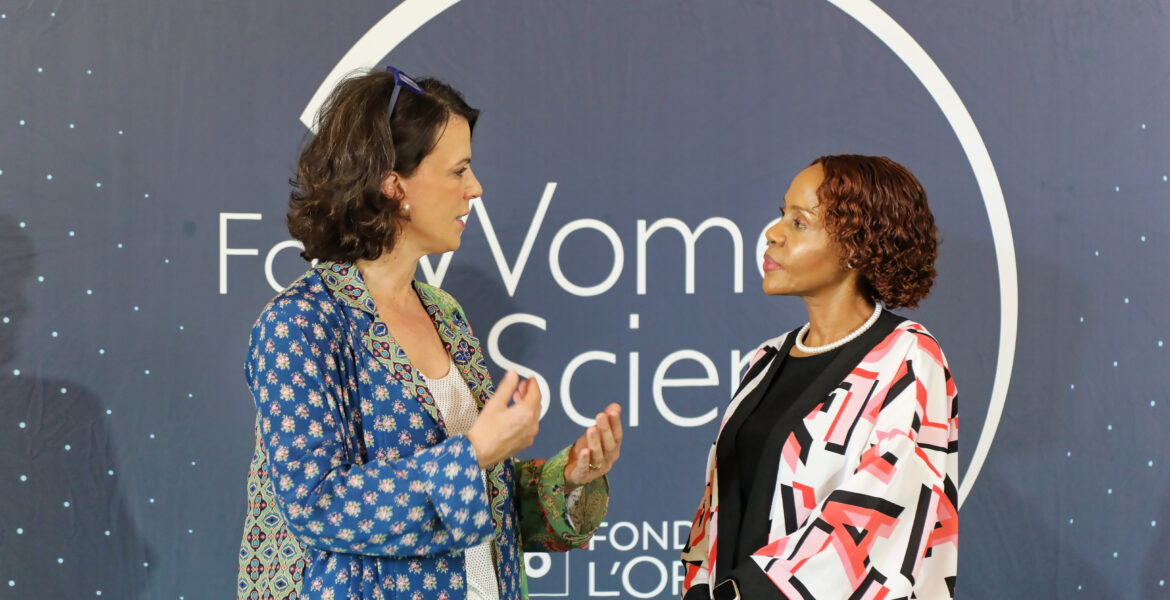- President says the “leaky pipeline” phenomenon causes a huge misrepresentation of women in STEM
- Foundation L’Oréal and UNESCO create enabling conditions for women scientists
GOSEGO MOTSUMI
In today’s world of perpetual crisis, empowering women scientists in sub-Saharan Africa should be a collective effort to address the major challenges of the century.
This was said by the CEO of Foundation L’Oréal, Alexandra Palt, at the Foundation L’Oreal and UNESCO for Women in Science Young Talents Awards for Sub-Saharan Africa ceremony in Kasane recently.
However, Palt added that empowering women scientists is still a pipeline dream because being a woman in science in sub-Saharan Africa today means being prepared to fight to pursue a career in a male-dominated field.
Women researchers invisibilised
“Africa today represents just 2.5 percent of scientists globally,” she told journalists at the media briefing.
“How should we imagine that young girls in Africa will enter into scientific careers while women researchers in their countries are invisibilised by the media, scientific publications and international forums?
“The need for scientific role models to inspire the young generations has never been more pressing.”
Breaking the glass ceiling
Hence the Foundation L’Oréal, in partnership with UNESCO, has taken action by creating the enabling conditions for women scientists’ voices to be heard.
This year the partners increased the number of young women scientists awarded and who benefitted from four days of leadership training and equipping them with the tools needed to break the glass ceiling in the scientific community from 20 to 30.
Foundation L’Oréal and UNESCO also hosted exchanges between Young Talent Awardees and young girls from Chobe secondary schools in Kasane to foster scientific vocations, inspiring them at the right time during their basic education to aspire to be women leaders in the science field.
Gender equality
Said Palt: “Neither Africa nor the world can overcome the environmental, societal, health and geopolitical crises of our time without one half of humanity. Our 30 young talents represent a real source of inspiration for every young girl who dreams of being a woman scientist.”
Speaking at the awards ceremony, President Mokgweetsi Masisi said the need to promote and enhance the status of women in science, technology and engineering around the world cannot be over-emphasised because they can bring new perspectives and increase the pool of talented researchers.
The President defined the Foundation L’Oreal-UNESCO Young Talent Awards as a liberating, inspiring and empowering experience towards gender equality.
Gender role socialisation
“According to UNESCO, although women account for half of the world’s population, less than 30 percent of the world’s researchers are women,” he said.
“This is, however, not a matter of ‘naturalness,’ rather it is a product of gender role socialisation.
“Women’s representation in various science fields has sadly been observed to progressively decrease from secondary school to tertiary education, all the way to the work environments.
“This phenomenon, known as the ‘leaky pipeline’(and) causes a huge misrepresentation of women in the Science, Technology, Engineering and Mathematics fields.”
President Masisi noted that the choice of Botswana by Foundation L’Óreal and UNESCO to host this year’s celebration is in line with the national ideals and aspirations of building a knowledge society.
National Research Fund set up
The Botswana National Research, Science, Technology and Innovation Policy of 2012 advocates for increased and equitable participation of girls and women in science, he added.
“We are alive to the fact that participation of women and girls in science and technology requires creating environments that are conducive for women to learn, train and work optimally,” said the President.
“We will ensure that such appropriate environments for fostering effective learning and mentorship are provided for our female scientists.
“I promise you that we will do all it takes to raise the bar even higher. Our immediate effort in this regard is that the National Research Fund is being set up to revolutionise the national research landscape in Botswana.
“Government’s wish is for our researchers to have the resources necessary for them to contribute to the growth of Botswana. This we will make sure is made possible.”

